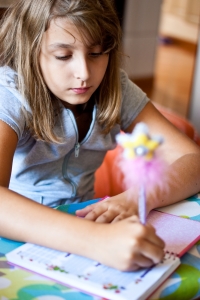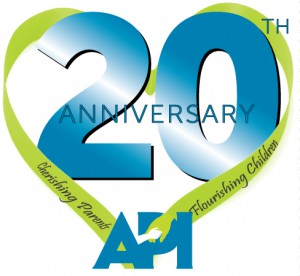By Jim Parker
 First, let me give you a little background on how I was raised, so you will have some idea why I believe Attachment Parenting (AP) has spared my family from another generation of physical and verbal abuse.
First, let me give you a little background on how I was raised, so you will have some idea why I believe Attachment Parenting (AP) has spared my family from another generation of physical and verbal abuse.
It gives me pause to consider the upbringing of this Texas latchkey kid, who was thrust into daily chaos with an absent, alcoholic father, a workaholic mother and an older, controlling sister. Are you getting the picture?
Though my mom was the primary caregiver, she had to work long hours to compensate for my father spending our rent and food money on his bad habits. She was exhausted most of the time, and it seemed my sister and I were more of an inconvenience to her at the end of the day.
In spite of all that, we must have had enough nurturing to instill a sense of right from wrong and to feel compassion for others. Fortunately, neither my sister nor I became career criminals.
Mom was raised with a razor strap and perpetuated her parenting model with us. Somewhere along the way, my sister reluctantly had to take over as primary caregiver. She was only 17 months older than I was and was usually angry and abusive to her little brother, who constantly sought love, attention and validation. As we grew to school age, she ignored me at school and told me she would deny it if I told anyone she was my sister.
That sounds humorous and fairly typical to most of you who have brothers or sisters, but to me it was a kick in the stomach. Had I had some stability at home–with someone–it may not have been so hurtful, but it was just another abandonment issue for me to deal with.
I was a performing musician when I met and fell in love with Lysa, who would eventually co-found Attachment Parenting International (API) with Barbara Nicholson, who together coauthored Attached at the Heart.
Our first son, Jesse, was about 2 years old when I began traveling on the road for long periods of time. He loved coming to the big bus to see where Daddy slept and to say goodbye.
One night, the band was in Fort Worth, Texas, USA, when I called home to say hello. When I told him I was bringing him a surprise, he tearfully exclaimed, “I don’t want a surprise. I want you!” That was the moment when I truly understood the purpose of Attachment Parenting.
Since I had had little interaction with my own father, I was taken aback by his need for me, having blocked the need for my own father out of necessity. It was at that moment when everything in the universe was altered that allowed me to be the father I never had.
Within a year, I was a full-time real estate agent with a good opportunity to start being a father who could be home every day. As the children grew older, I showed property during the day and made it a point to be there when the boys came home from school. I didn’t want them to feel the emptiness that I had experienced, with no one to talk to about their exciting moments of the day.
My propensities to spank and verbally abuse were very strong due to my upbringing. It was a struggle to stop the urge to lash out as we had done in my family. Even today, as an adult, the slightest irritation can sometimes thrust me into “fight or flight” because of how I was treated by my family when I was an innocent, needy child.
I realized what terrible effects this had on me as a child. I understood that verbal and physical abuse is not the way to make a positive impression on a tender psyche. Yet only through my loving wife’s persistence, learning from her work with API and many years of teaching special education, have I been able to work through some of my issues to be a more loving, nurturing father.
I have to admit, I was a little resistant to Attachment Parenting at first, especially when it came to sharing our bed. However, I trusted my wife’s instincts and surrendered. Now I wouldn’t trade a thing for all the wonderful memories we have of our children sleeping with us.
I have seen the results of Attachment Parenting first hand. Attachment Parenting has been critically important in helping me develop strong emotional bonds with my sons. Because of those strong bonds, I learned a more empathic way of disciplining that doesn’t require yelling or hitting.
 Attachment Parenting has made a profound, positive change in me as a father and a person.
Attachment Parenting has made a profound, positive change in me as a father and a person.
It hurts me to watch how some of my clients interact with their children. I try to model respectful behavior to all children, especially those who receive little respect from their parents. I also make a point of talking about Attachment Parenting every chance I get. In some small way, I know I’m making a difference.







